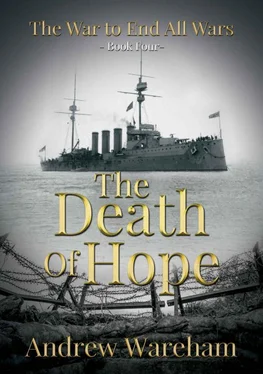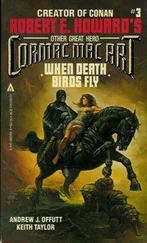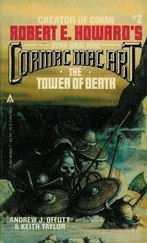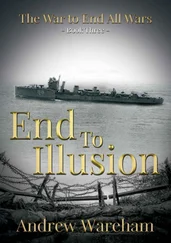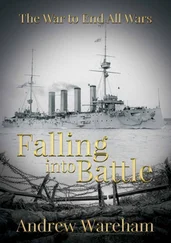“Brought her from the yard at Chatham, three days ago, sir.”
“Good. No dents as well!”
“Not one, sir!”
They exchanged grins, each deciding they would find it easy to work together.
“We have a spare hand coming aboard, Mr Strachan. The expectation is that we will be at sea on patrol for several days at a time over the winter. An extra body will be able to provide relief, allow for a bit more sleep occasionally. He has not got his certificate yet, for lack of opportunity. I think he may prove very capable. He is a little larger than average.”
“Beg pardon for contradicting you, sir. If that is him in the drifter coming over now, he’s bloody enormous!”
They observed the mass coming towards them.
“Better tell the wardroom steward to get some extra supplies in, Strachan.”
They watched Mudgely swarm up the ladder, salute the quarterdeck and announce his presence to the rating on duty at the accommodation port.
“Yes, sir. Captain has just come aboard, sir.”
Mudgely stepped forward.
“Reporting to join, sir.”
“Welcome aboard, Mudgely. Mr Strachan is First and will settle you in.”
He left the pair, walking briskly to his cabin, stopping to inspect the new gun in place of the Maxim. The Commissioned Gunner, Mr Rees, was there, exercising the three-man crew.
“’Morning, Mr Rees! Good leave?”
“Very, thank you, sir. Finally have my wife settled in our own house here in Harwich, sir. Managed to buy my own little place.”
“That’s good, Mr Rees. I became engaged to marry, myself. Probably have a wedding in our next long leave – which won’t be for some little time, I suspect!”
Rees offered his congratulations, staring in awe at Mudgely as he was led to the wardroom.
“New sub, Mr Rees. Show him round the guns, please. I think we will find him to be a good seaman – years on the drifters, so he is used to the North Sea. In the nature of things, he will know nothing of guns or torpedoes.”
“Huge, is he not, sir. Carries himself like a seaman, sir. Good school, the drifters. A man brought up on them should know his way about any small ship.”
“So I thought, Mr Rees. What do you think of the new gun?”
“Rapid fire, sir. Over a thousand yards, a useful weapon. Short range, but so is most of our work. I am not sure what it will do as an anti-aircraft weapon. Difficult to take an aim. A bit slow on its mounting. On balance, sir, considering that we have seen an aeroplane no more than twice since I have been aboard, it should be a useful gun. Better than the Maxim, for sure.”
“Good. What of ready-use?”
Rees pointed to a far larger locker, on the centreline behind the gun.
“Additional magazine space belowdecks, sir. Three gunners – layer, loader and third hand whose job is to keep the rounds coming into the loader’s hands. Explosive shells. Contact fused, for lack of time to set fuses in rapid fire.”
“Should do some damage to a small ship’s upperworks in close action. The gunlayer will have to use his discretion, especially in night action.”
“Yes, sir. Experienced hand, sir. Norton. Twenty year man, sir.”
Norton came to the salute, showed himself to be older than most aboard, well into his thirties, still seeming fit and competent.
“South Africa, Norton?”
“HMS Terrible, sir. Was one of her gun party ashore, sir. Better part of a twelvemonth, that was, chasing about with a six inch pulled by three dozen of oxen, sir. Didn’t know whether I were a gunner or a farmer, half the time, sir. China Station since, sir, and a few years on the East African coast on Challenger, sir. Scapa on Royal Sovereign, sir, last ship. Had the chance to come to the destroyers, sir. Took it for being better than polishing the brass at Scapa.”
“You can expect to be busy here, Norton. The gun is new – see what can be done with it.”
“Aye aye, sir.”
Simon wondered if Norton might be too much set in the ways of the big ships, needing orders rather than thinking for himself as was demanded on the destroyers. It might be necessary to shift him across to one of the four inchers instead. Give him a chance and then speak with Rees – he would not condemn the man without giving him the opportunity to show what he could do.
They waited for orders, exercising the hands, fitting in the new bodies who had replaced men gone away on promotion or taking courses.
Dunkerque again, reaching the port as a storm blew in, sheltering for a day and then out into its tail end.
“Out to the Dutch border, showing ourselves along the coast in daylight. Then it’s off to the Broad Fourteens and pick up the neutral convoy route from Orford Ness to Amsterdam. Show our faces there and work our way to Dutch waters and then back to the Belgian coast again. Repeat and go home. Make revolutions for twelve knots, reducing expenditure of oil. Four knots in the hours of darkness.”
Simon hesitated for a second or two, glancing around the captains and first lieutenants squeezed into his cabin.
“We must keep a good lookout at all times. At night especially, they must use their ears. Try to pick up the sound of submarines charging their batteries, which I understand they must do for hours every night. If you pick up a sub, fire star shell and all ships will respond. Please, do not ram submarines. They have pressure hulls which are a damned sight more robust than ours. You may sink a sub. You will certainly put your own boat in the yard for six months. We are to be provided with depth bombs, one day. Until then, gunfire to drive them under and patrol to keep them down until they have the choice of suffocate or come up and fight on the surface.”
“Are we likely to get these hydrophone things, sir?”
“When they have made them more useful, yes. Campbell-Barnes. At the moment, they have to be hung over the side of a ship making no more than steerage way. The ideal is at a dead stop, I am told. Setting myself up as a target for a torpedo is not my idea of fun.”
The others agreed. It was not a good habit to get into.
“What is our policy for storm, sir?”
“As long as we can man the guns, we stay out. If we cannot keep men on deck, we can be of no use and must make our way back. Keep a sharp lookout for floating mines. Gales will snap mooring wires, I am told. The location of minefields, by the way, is one of our functions. The Admiralty is not entirely certain that it has located all fields accurately.”
They were not entirely happy to hear that. Working inshore, they were always in proximity to minefields. The suggestion that they might just be a mile or two distant from where they were shown on the charts was not popular.
“I thought we had good knowledge of the location of the German fields, sir.”
“We have, Captain Williams! It is our own they are worried about, having decided they do not entirely trust the navigation of the reservist officers aboard the minelayers.”
“That’s a bit rich, sir!”
“It is, isn’t it. The Admiralty never really approved of mines, it would seem, and did not pay too much attention to them last year when they were being laid.”
“And the right hand ended up not knowing what the left hand was doing, again, sir.”
“As you say, gentlemen. Again. Now then, how were you equipped in the yard? Lancelot has a thirty-seven mil Hotchkiss, as you may have noticed. I have not inspected you, for lack of time, but you all seem to have something different.”
Lightning had been given a short-barrelled six pounder quickfirer with no capacity for aircraft. Lynx had a two pounder pompom with high angle capability. Lucifer was proud possessor of a three incher, high angle only.
“Twelve pound shells, sir, and the fuse to be set by the loader, which much reduces the rate of fire, I suspect. Firing blanks in practice we have been lucky to get off two rounds a minute. The layer has a telescope which enables him to estimate height – my Gunner says it’s very clever. He shouts the setting, the loader puts it on and they can fire, estimating the laying off for speed of the aeroplane. The Gunner says it might work for a plane at height – five thousand feet or so.”
Читать дальше
